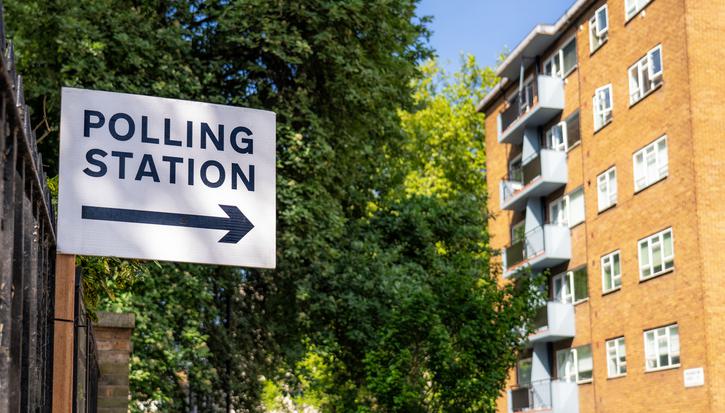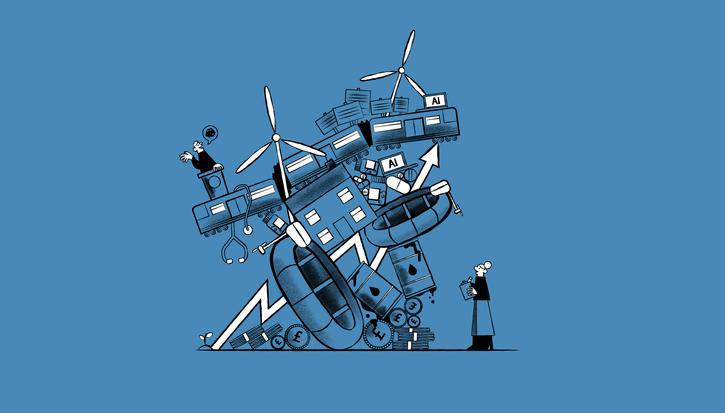Britain is still clueless about the EU’s motives in Brexit negotiations
Britain is still clueless about the EU’s motives in Brexit negotiationsArticle
What works for a lamb will not work for a lion. This was how a senior European official dismissed the idea that Britain could ever be trusted with the same deal outside the EU as Norway enjoys today. After more than 40 years of membership and nearly two years of endless debate about Brexit, there is still virtually no understanding in Britain of how the British are viewed by the rest of Europe.
The lack of self-awareness is costly. It is impossible to understand the negotiating approach of the EU without first understanding how it views the UK. A successful negotiation should first be a process of discovery: understanding what matters to the other side, why it matters, and where common ground might be found. This has not happened.
The discourse of European officials means it is easy to mistake the motives behind the EU’s position. The article 50 process is often presented as merely the “application of rules” – that it has a legal order that must proceed mechanically, in the arena of technocracy rather than politics. This is not true. The EU’s primary negotiating objective is best understood in a single word: containment – both of a Britain unconstrained by membership and of the exit contagion introduced by Brexit. The EU is in equal measure fearful and resolute.
The fear is that Britain will have its cake and eat it. For the EU, this means enjoying rights without accepting responsibilities, accruing the benefits of European integration without shouldering the burdens. The success of the European project is more important to Brussels than the economic value of the trading relationship with the UK. Brussels is resolute that the British will not “get the better” of the EU. But why is it so fearful?
Perceptions of character, history and politics are what inform the EU’s negotiating approach. In Brussels, the British are viewed with suspicion – seen as hiding cunning behind charm, using manners as a cloak for ruthlessness, and, at their core, being strategic, stubborn and mercantile. These stereotypes of character are joined by experience. It is precisely because Britain has so successfully secured its interests as a member of the EU – shaping the evolution of the European project while securing opt-outs from key parts of it – that the other member states understand how ruthlessly it pursues its interests. One of the great ironies of the current impasse is that Britain’s success in the EU stokes fears of its conduct outside it.
Moreover, that Britain should choose to storm out of an institution where it had thrived diplomatically and journeyed from the “sick man” to the fastest-growing economy, has convinced European officials that British politics is erratic, unstable, and irrational. British politicians are, therefore, not to be trusted. There is a belief that the British – accustomed to great power for centuries – are simply incapable of accepting any rules. Britons lazily project their domestic political model – where one side wins, the other loses, and the winner dominates the loser – on to a European politics that is very different. For two years, the British government has seized every opportunity to amplify these fears.
When European bureaucrats emphasise “the integrity of the single market”, or “the autonomy of the union’s legal order”, as when they rail against “cherry picking”, what they mean is that Britain and the Brexit contagion must be contained, to prevent other countries from seeking to follow Britain’s example. From the EU’s perspective, there are three alternative strategies to achieve this containment.
First, containing Britain in the existing European system as a member state, achieved by reversing Brexit. This strategy is the most preferred but least likely. Wisely, Brussels does not promote this path, but neither does it act to exclude it. The second alternative would be to create a new arrangement whereby Britain remains economically close to the EU, enjoying similar benefits to today, but is contained within a parallel system of rules – not EEA membership but a bespoke deal on similar principles. It is why the EU says the customs union and the single market are on the table, if the UK is interested in them. The third option for the EU is to establish new barriers to trade – outside the single market and without a customs union – and to treat the UK as simply another “third country” with which an interests-based trade deal will be struck. It is understood that new barriers would come at a cost.
For Brussels, the first strategy is unlikely and the third strategy is undesirable. But it is Theresa May who has taken the second option off the table. In Brussels last week, it was apparent that a good deal – one that honours the referendum result but seeks to continue our close economic partnership, as described in the IPPR’s “shared market”proposal – is still possible. Before the referendum of 2016, most Brexiters claimed this was their desired outcome – economically close, but politically separate. Yet since the vote to leave, the Brexiters’ aversion to all things European has developed into a full-blown allergy. The prime minister’s speech shows they have won: while the government might have wisely softened its tone, it has foolishly hardened its stance.
The sharpest critique of Britain’s vote to leave was that the country had blamed problems of its own making on Brussels because it was easier than taking responsibility for them. The UK government is making Michel Barnier’s job easy: Britain seems determined to contain itself.
This originally appeared in Guardian Opinion.
Tom Kibasi is director of the Institute for Public Policy Research and chair of the IPPR Commission on Economic Justice
Related items

Modernising elections: How to get voters back
Elections are the defining feature of modern democracy. They are the process by which we express a desired future en masse. It is the mass dimension that matters most; it is the mass dimension that is receding.
Bridge to the future: how to get the NHS through the winter and ready for reform
NHS staff across the country are gritting their teeth. Christmas parties have come and gone, but a more threatening annual tradition looms once again – the NHS ‘winter crisis’. This period, renowned for long waits and increased mortality,…
The great enabler: transport’s role in tackling environmental crises and delivering progressive change
In this special issue of IPPR Progressive Review we bring together leading political, academic and civil society thinkers to consider transport in modern Britain and its role in delivering a healthier, greener, more prosperous and…